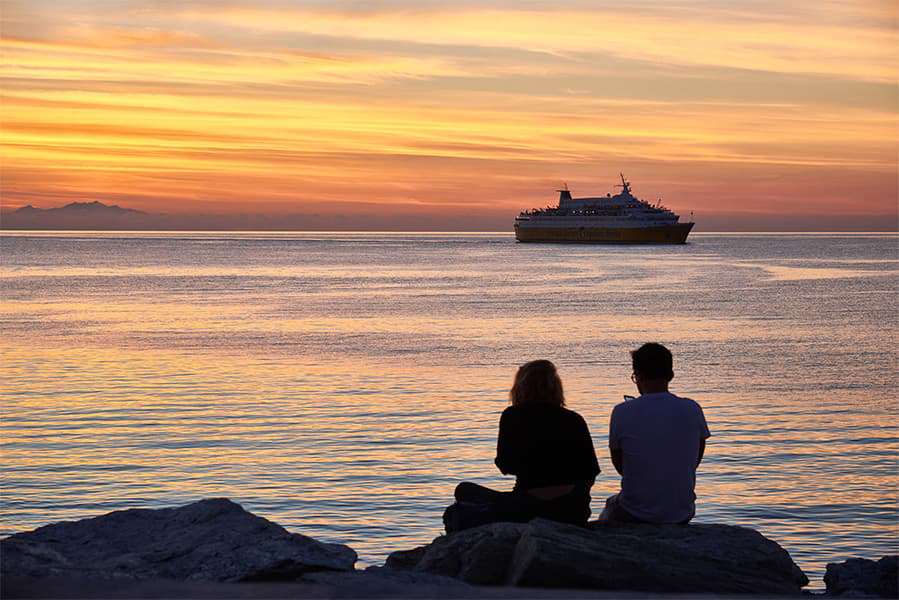Yarmouth - Lymington
Ferry to England
Yarmouth - Lymington
Ferry to England

Ferries from Yarmouth to Lymington are operated by 1 ferry company; Wightlink. The journey usually takes around 40 minutes. There are currently 110 weekly sailings on this ferry route. Prices start from as little as £31. Use our Deal Finder to compare prices and availability and book your ferry to Lymington today.
More routes than anyone else.

Compare fares, times & routes in one place.
Change plans easily with flexi tickets.

Book e-tickets & manage trips in-app.
Live ship tracking & real-time updates.

Top-rated customer support when you need it.
| Yarmouth - Lymington Ferry Route summary | ||
|---|---|---|
| Origin | Isle of Wight | |
| Destination | England | |
| No. of Operators | 1 | |
| Operators | Wightlink | |
| Average Price | £120 | |
| Average Daily Sailings | 16 | |
| Average Weekly Sailings | 110 | |
| Average Sailing Duration | 40 m | |
| Fastest Sailing Duration | 40 m | |
| First Ferry | 06:55 | |
| Last Ferry | 21:50 | |
| Distance | 4 Nautical Miles | |
* Prices subject to change, pricing is taken from last 30 days, last updated 1 January 2026.
Lymington is a town and harbour on the west bank of the namesake river, facing the Solent on the south coast of England. Ferry services from Yarmouth have been running since the 19th Century, but in 1990, the route was taken over by Wightlink, completing the journey in approximately 40 minutes.
The town's proximity to the beautiful New Forest and its well-sheltered harbour has made it a very popular tourist destination, particularly amongst yachters. Also, it’s actually home to three marinas, with a famous maritime history, and in recent years it has hosted some famous international sailing regattas including the Royal Lymington Cup, Etchells Worlds, Macnamara's Bowl and Source Regatta.
The strong tides of the Solent make sailing off Lymington's coast a challenge and the relatively shallow depth of the Lymington River has meant that some of the regattas have now moved across the Solent to Cowes on the Isle of Wight.
The town of Yarmouth is located on the western part of the Isle of Wight, which is just off the south coast of England. A popular gateway to the mainland, Wightlink Ferries provides over a dozen crossings daily to Lymington, Hampshire, lasting approximately 40 minutes.
It is one of the smallest towns in the United Kingdom with a population of just 791 in 2001, compared to 600 at the beginning of the 19th century. Its small port still has some boat yards and chandlery, supporting a number of local businesses including shops, restaurants and hotels that rely on the passing trade coming from the ferries and yachts utilising the harbour.
One of the most popular attractions is the 16th century Yarmouth Castle which is now maintained by English Heritage. It is effectively a gun platform built by Henry VIII to strengthen the Solent and protect the Isle of Wight: historically an important strategic foothold for any attempted invasion of England.